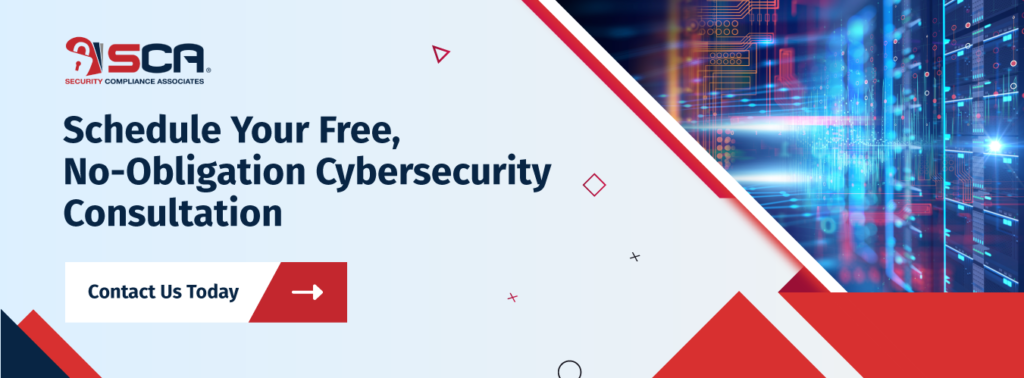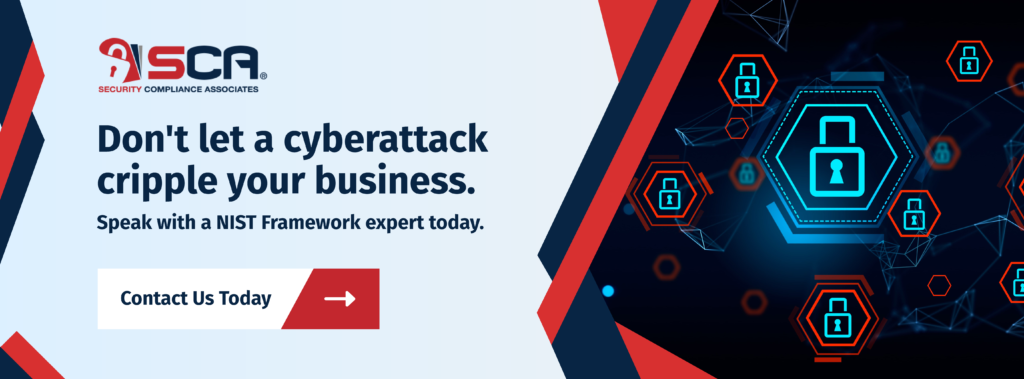
7 Pro Tips from a Cybersecurity Consulting Firm for Awareness Month
In light of Cybersecurity Awareness Month, we wanted to share some tips from our cybersecurity consulting experts on how businesses can protect themselves online. Robust cybersecurity is more critical than ever, and we’ve put together some tips for CTOs, IT managers, and business owners to help them move their cybersecurity game up a notch:
- Educate Your Employees About Cybersecurity Best Practices
- Invest in a Cybersecurity Solution
- Stay up to date on the Latest Cybersecurity Threats
- Keep Your Software up to Date
- Use 2FA Whenever Possible
- Encrypt Sensitive Data
- Perform Regular Security Audits
We hope that by sharing some of these best practices, we can help keep your data safe and make the internet a safer place, in general, for everyone.

7 Best Practices for Cybersecurity Awareness Month
1. Educate Your Employees About Cybersecurity Best Practices.
One of the most vital things you can do to protect your business’ data is to educate yourself and your employees about cybersecurity. Teach them how to spot phishing emails, create strong passwords, and keep their devices secure.
The more knowledgeable you and your team are about cybersecurity, the better equipped you’ll be to handle any threats that come your way. Develop a comprehensive employee cybersecurity awareness training program to cover all they need to know about staying proactive against threats.
2. Invest in a Great Cybersecurity Solution.
There are several options out there for cybersecurity solutions, so do your research and invest in the ones that help reduce cyber risks and are appropropriate for your organization’s size and complexity . Good security solutions will help protect your data, keep your devices safe, and give you peace of mind knowing that your business is as safe as it can be.
3. Stay Up-to-Date on the Latest Threats.
The world of cybersecurity is constantly changing, so it’s essential to stay up-to-date on the latest threats. You can do this in several ways, such as subscribing to industry newsletters or following thought leaders on social media. By keeping up with the latest cybersecurity news, you’ll be able to identify potential threats early and take steps to protect yourself accordingly.
Ensure that you’re keeping your entire staff up to day on all the latest factors related to cybersecurity awareness. For example, send internal memos to all departments outlining the latest insights and tips so that everyone is on the same page when it comes to preventing costly data breaches.
4. Keep Your Software Up to Date.
One of the easiest ways for your business to minimize your cybersecurity risks is to ensure all your software is up to date. That includes everything from your operating system to the apps on your phone.
Software updates often include security patches that can help close vulnerabilities that hackers could exploit. So, set up automatic updates for all your devices and software. Ensure you install those updates as soon as they become available.
5. Use Two-Factor Authentication Whenever Possible.
Two-factor authentication (or 2FA) is an extra layer of security that requires users to provide a password and another piece of information before they’re allowed access to an account or system. This can be a code texted to a user’s phone or a fingerprint scan in addition to a password.
2FA makes it much harder for hackers to gain access to systems because even if they have a user’s password, they won’t be able to get past the second factor without having physical access to the device or knowledge of the user’s biometrics. Anytime you have the option to enable 2FA, do it! Your company will be better off for it.
6. Encrypt Sensitive Data.
If you collect sensitive information from customers or clients—such as credit card numbers or Social Security numbers—make sure that data is encrypted before it’s stored anywhere, whether that’s on a server, in the cloud, or on someone’s hard drive. That way, even if hackers are able somehow to obtain that data, they won’t be able to read it without the encryption key.
Data encryption is one of the most effective ways to protect sensitive information, so make sure you take advantage of it whenever possible.
7. Perform Regular Security Audits.
Last but not least, don’t forget to perform regular security audits! This will help you identify any weak points in your defenses so you can address them before hackers have a chance to exploit them.
Security audits, including vulnerability scans and information security risk assessments, can be performed internally by your IT staff or by an external cybersecurity consulting firm like ours—either way, they’re essential for keeping your cybersecurity program up-to-date and effective against the ever-changing threat landscape.
These are just a few things you can do this Cybersecurity Awareness Month (and beyond!) to help reduce your company’s risk of falling victim to a data breach or other cyber attack. By following these tips and staying vigilant, you’ll be well on your way to building a strong cybersecurity program that will keep your company’s data safe and secure now and in the future.


